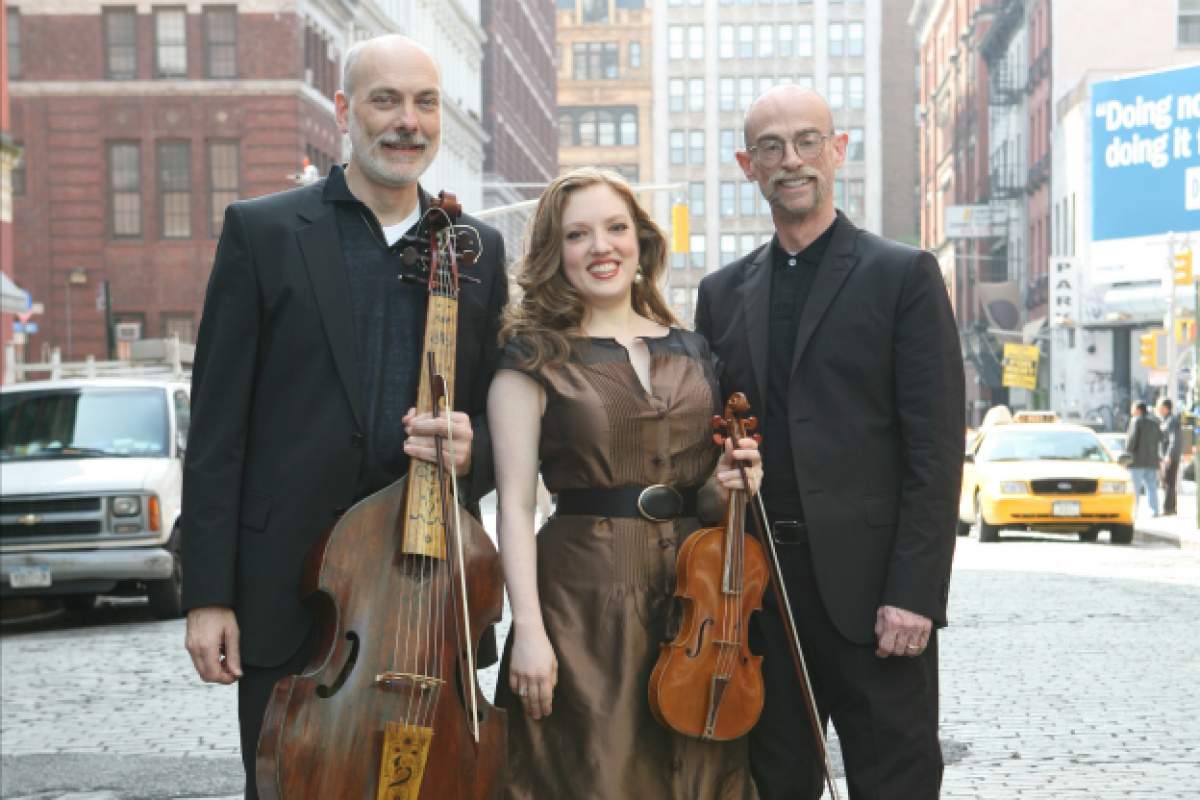
Trio Settecento has been busy in the past few years releasing a three part “Grand Tour” series for Cedille Records of baroque music from Germany, France, and England. Since finishing that series, the trio has turned their attention to a new ambitious project—one that seems to suit them well—a just released recording of the complete Op. 2 Sonate Accademiche by Francesco Maria Veracini.
One God, One Veracini
Veracini had a reputation for being one of the most virtuosic violinists of his time, and apparently he knew it! 18th c. music historian Charles Burney emphasized both Veracini’s capability as a performer and his arrogance saying that “Veracini was so foolishly vainglorious as frequently to boast that there was but one God, and one Veracini.” But Burney also conceded that at least Veracini could not only talk the talk but also walk the walk. According to Burney, Veracini "built his freaks on a good foundation, being an excellent contrapuntist…the peculiarities in his performance were his bow and his shake, his learned arpeggios, and a tone so loud and clear that it could be distinctly heard through the most numerous band of a church or theatre.”
Yes, Veracini was a celebrated virtuoso during his time, and we get to re-live that virtuosity through Trio Settecento’s new recording dedicated entirely to Veracini. Whatever pyrotechnics Veracini wowed his audiences with back in the 18th century are surely matched by violinist Rachel Barton Pine throughout the entirety of this recording.
A "Cosmopolitan"
Veracini was born, and buried in Florence, but he worked and travelled widely in Europe during the course of his career, assimilating lots of different styles into his playing. Those cosmopolitan influences emerge in several of his Sonate Accademiche.
Sonata No. 2 begins with a Polonese, and also includes a movement titled Aria schiavona or ‘Slavonic air.’ Later the Capriccio movement of the 4th sonata titled Cottillon is based on a French tune, and the third movement of the 9th sonata is titled Scozzesse or simply, “Scottish.” In this movement Veracini composes what amounts to a fantasy on the popular Scots tune Tweedside. The tune may be familiar in its version from The Beggar’s Opera:"The stag, when chas’d all the long day . . . ”
The movement is one of the highlights of Trio Settecento’s recording. Taking a cue from Veracini’s own Scottish flavored ornaments, the group plays it up in their version. In the CD’s program note we learn that in preparation for their recording of this movement, Trio Settecento consulted with master fiddler John Turner and the faculty of the Jink and Diddle School of Scottish Fiddling, specialists in 18th-century Scottish repertory and performance practice.
Trio Settecento
Trio Settecento's recording spans three discs. Fabio Biondi has also recorded these works in part as has John Holloway. But if memory serves, it has been since Elizabeth Wallfisch and the Locatelli Trio’s 1995 recording that anyone else has undertaken the complete set. Twenty years on, this is surely a welcome addition for listeners of Veracini’s tour de force. The recording even includes the very rarely heard piece that occupies the final page of Veracini’s 1744 publication, a little two-voice canon on the Latin ditty “Ut Relevet Miserum Fatum Solitosque Labores." Do you get it?? Sometimes the trick is easier to see than hear.









